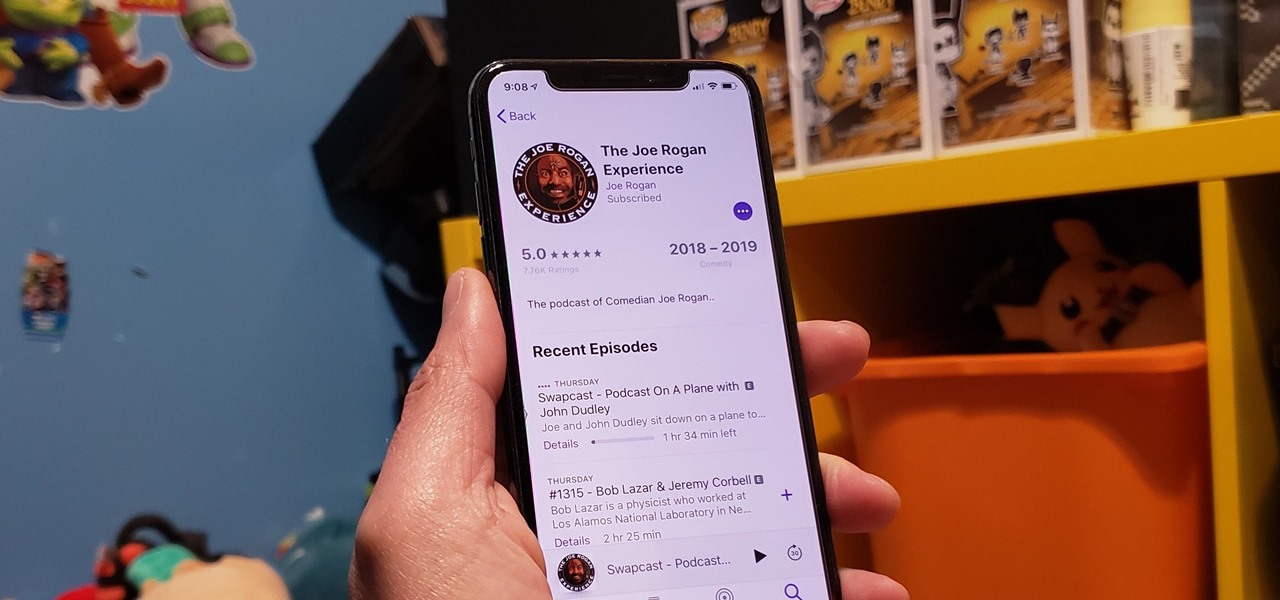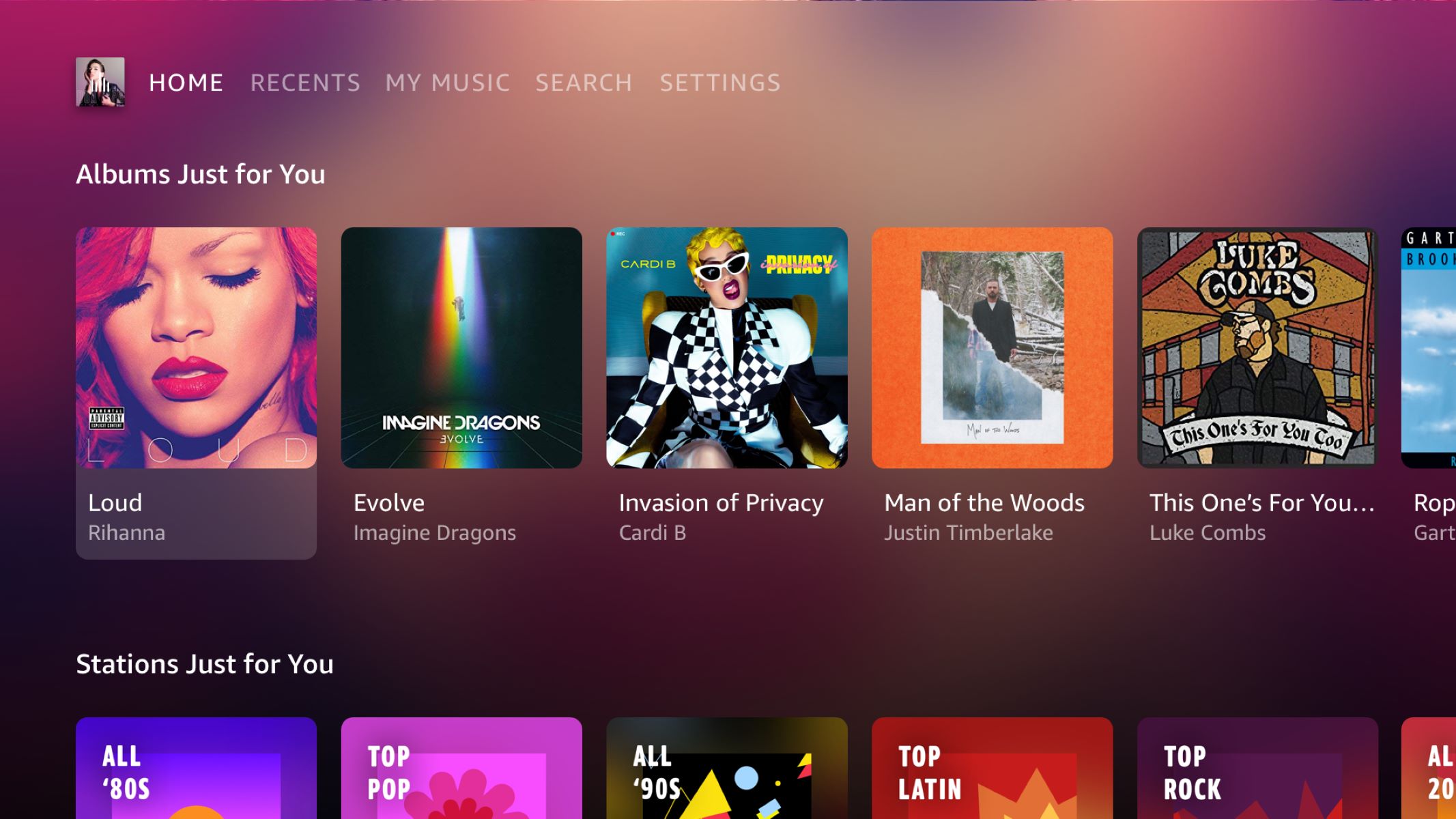Home>Events & Info>Podcast>How Do I Get On A Podcast


Podcast
How Do I Get On A Podcast
Modified: January 22, 2024
Want to know how to get on a podcast? Learn tips and strategies for landing guest spots on popular podcasts and reach a wider audience.
(Many of the links in this article redirect to a specific reviewed product. Your purchase of these products through affiliate links helps to generate commission for AudioLover.com, at no extra cost. Learn more)
Table of Contents
Introduction
Podcasts have become increasingly popular in recent years, providing a platform for individuals from all walks of life to share their stories, expertise, and insights with a wide audience. Whether you have a compelling story to tell, specialized knowledge to share, or a unique perspective to offer, getting on a podcast can be a powerful way to connect with listeners and expand your reach.
In this article, we will explore the process of getting on a podcast and provide you with tips to increase your chances of being invited as a guest. From finding the right podcasts to reaching out and pitching yourself as a potential guest, we will cover everything you need to know to make a memorable appearance on a podcast.
Before diving into the details, it’s important to understand the advantages of being a podcast guest. Firstly, podcasts offer a highly engaged and loyal audience who are actively seeking out valuable content. By appearing as a guest on a podcast, you have the opportunity to reach a targeted audience that is already interested in your niche or industry.
Secondly, podcasts allow for a more in-depth and personal conversation compared to other forms of media. Unlike a brief TV or radio interview, podcasts often provide a longer format, allowing guests to share their expertise, stories, and insights in a more relaxed and conversational manner. This depth of discussion provides greater value to listeners and allows you to establish yourself as an authority in your field.
Lastly, appearing on a podcast can significantly enhance your personal brand and credibility. By showcasing your knowledge and expertise in a specific area, you can build trust and authority within your industry. This can lead to new opportunities such as speaking engagements, collaborations, or even attracting clients or customers.
Now that we understand the benefits of being a podcast guest, let’s dive into the process of finding the right podcasts, researching, reaching out, and ultimately securing a valuable spot as a guest on a podcast.
Finding Podcasts
When it comes to finding podcasts, the first step is to think about your target audience and the topics that align with your expertise or interests. Consider the niche or industry you belong to and start searching for podcasts in that specific area. There are several ways to discover podcasts that may be a good fit for you:
- Podcast directories: Utilize popular podcast directories such as Apple Podcasts, Spotify, Google Podcasts, or Stitcher. These platforms provide categories and search functionalities that allow you to refine your search based on topics, keywords, and genres. Browse through the featured podcasts, popular shows, or even top charts to find podcasts that resonate with your expertise.
- Ask for recommendations: Reach out to your network, colleagues, or industry peers and ask if they know of any podcasts that might be a good fit for you. Recommendations from trusted sources can often lead you to hidden podcast gems that may not appear in popular directories.
- Google searches: Conduct targeted Google searches using keywords related to your niche and include the word “podcast” in your search query. This can help you discover podcasts that are specific to your industry or area of interest.
- Social media: Utilize social media platforms like Twitter, LinkedIn, or Facebook groups to ask for podcast recommendations or search for relevant hashtags in your niche. Many podcasters actively promote their shows on these platforms, making it easier for you to find potential podcasts to appear on.
As you explore different podcasts, take note of their format, audience size, and the types of guests they typically feature. This will help you determine if a particular podcast aligns with your goals and target audience.
Remember, it’s not just about finding the most popular podcasts with the largest audience. While those podcasts may offer great exposure, smaller and more niche podcasts can also be valuable. These podcasts often have highly engaged audiences who are passionate about the specific topic or industry being discussed.
Once you have identified a list of potential podcasts, the next step is to research each podcast more in-depth to determine if they are a good fit for your expertise and goals.
Researching Potential Podcasts
After finding a list of potential podcasts, it’s important to research each podcast further to gain a deeper understanding of their audience, format, and content. This research will help you determine if a podcast is a good fit for your expertise, goals, and target audience.
Here are some key steps to take when researching potential podcasts:
- Listen to episodes: Take the time to listen to several episodes of each podcast on your list. This will give you a feel for the podcast’s style, tone, and the types of guests they typically feature. Pay attention to the topics discussed, the format of the show (interview-based, solo-hosted, panel discussions, etc.), and the overall vibe of the podcast.
- Check their website and social media: Visit the podcast’s website and browse through their episodes, show notes, and any additional resources they provide. This will give you more information about the podcast’s focus, mission, and values. Additionally, check out their social media profiles to see how they engage with their audience and promote their episodes.
- Read reviews and ratings: Look for reviews and ratings of the podcast on platforms like Apple Podcasts or Podchaser. This feedback can provide insights into the podcast’s quality, audience satisfaction, and overall reputation.
- Research the podcast host: Get to know the podcast host(s) by researching their background, expertise, and interests. This will help you understand their perspective and how you can provide value to their audience.
- Consider audience demographics: Look for information about the podcast’s target audience. Consider factors such as age range, location, interests, and industry focus. This will help you determine if the podcast’s audience aligns with your target audience.
By conducting thorough research on potential podcasts, you will be able to make an informed decision about which podcasts to prioritize and how to tailor your pitch when reaching out to them. The more you know about a podcast, the better equipped you will be to craft a compelling pitch that demonstrates your relevance and value as a guest.
Reaching Out to Podcasts
Once you have identified the podcasts that align with your expertise and goals, it’s time to reach out and make a connection with the podcast hosts. When reaching out, it’s important to approach each podcast individually and personalize your message. Here are some steps to guide you through the process:
- Find contact information: Look for the podcast’s contact information on their website or social media profiles. Most podcasts will have a designated email address or a form to submit guest inquiries. If you can’t find contact information, consider reaching out through social media by sending a direct message or tagging the podcast in a relevant post.
- Craft a personalized message: When reaching out, make sure to address the podcast host by name and mention why you believe you would be a valuable guest on their show. Customize your message by referencing specific episodes or topics that resonated with you and explain how your expertise or story aligns with their podcast’s theme or audience.
- Show enthusiasm and authenticity: Let your passion and excitement for the podcast shine through in your message. Be yourself and showcase your genuine interest in being a guest on their show. This will help you establish a connection with the podcast host and make them more inclined to consider your pitch.
- Highlight your value proposition: In your message, clearly communicate the value you can bring to their podcast and audience. Whether it’s sharing unique insights, providing practical tips, or offering a compelling story, emphasize what makes you a standout guest and how their audience would benefit from hearing from you.
- Offer potential topics: Suggest a few topic ideas that you believe would be of interest to their audience. This shows that you have put thought into your pitch and are willing to contribute valuable content. Be open to their suggestions as well, as they may have specific topics or angles they are looking to cover.
- Keep it concise: Keep your email or message concise and to the point. Podcast hosts receive numerous inquiries, so make it easy for them to skim through and understand your pitch quickly. Avoid lengthy paragraphs and use bullet points or subheadings to organize your message if necessary.
- Follow up if necessary: If you don’t receive a response after a reasonable amount of time, consider sending a polite follow-up message. Sometimes, podcast hosts can be busy or overlook emails, so a gentle reminder can be helpful.
Remember, the key to reaching out successfully is to personalize your message, demonstrate your value, and show genuine interest in the podcast. Engaging with podcast hosts in a respectful and professional manner will greatly increase your chances of securing a spot as a guest on their show.
Pitching Yourself as a Guest
When it comes to pitching yourself as a guest on a podcast, it’s important to craft a compelling and persuasive pitch that showcases your expertise, unique story, or valuable insights. Here are some key elements to consider when pitching yourself:
- Personalize your pitch: Tailor your pitch to each podcast and explain why you believe you would be a great fit for their specific audience. Referencing specific episodes, topics, or discussions from their show demonstrates that you’ve done your research and are genuinely interested in contributing to their podcast.
- Highlight your expertise: Emphasize your knowledge, experience, and unique perspective in your pitch. Explain how your expertise aligns with the podcast’s theme and how you can provide valuable insights or practical tips to their audience. This will make you stand out as an expert in your field.
- Showcase your story: If you have a compelling personal or professional story, use it to your advantage. Storytelling is a powerful way to connect with listeners and make your pitch more memorable. Share how your journey, challenges, or experiences can inspire and resonate with the podcast’s audience.
- Provide social proof: Include any relevant credentials, achievements, or accolades that establish your authority in your field. This can include awards, certifications, media features, or successful projects you have been involved in. Social proof enhances your credibility and makes your pitch more compelling.
- Offer value to the audience: Explain the specific ways in which you can provide value to the podcast’s audience. Describe the practical advice, insights, or actionable steps you can share that will benefit the listeners. Show that you have a clear understanding of their audience’s needs and are committed to delivering valuable content.
- Be concise and engaging: Keep your pitch concise, engaging, and easy to read. Use bullet points, subheadings, or short paragraphs to make it visually appealing and easy to digest. Highlight key points and make it clear why you would be a compelling guest.
- Be professional and polite: Use a professional and respectful tone throughout your pitch. Always thank the podcast host for their time and consideration, and demonstrate your willingness to accommodate their schedule and requirements. Be polite and courteous in your communication, and always respond promptly to any follow-up inquiries or requests from the podcast host.
Remember, a well-crafted pitch that effectively communicates your expertise, story, and value to the podcast’s audience will significantly increase your chances of being chosen as a guest. Make a strong impression and demonstrate your enthusiasm, and you’ll be one step closer to securing that coveted spot on a podcast.
Preparing for the Podcast
Once you have successfully secured a spot as a guest on a podcast, it’s essential to take some time to prepare and ensure that you deliver a memorable and engaging episode. Here are some key steps to help you prepare for the podcast:
- Research the host and podcast: Dive deeper into the podcast and the host’s style, previous episodes, and guest interviews. This will help you understand their approach and tailor your content and tone accordingly. Familiarize yourself with their most popular episodes and the topics that resonate with their audience.
- Clarify the logistics: Communicate with the host to confirm the date, time, and format of the podcast. Make sure you understand if it will be a live recording, a pre-recorded interview, or any other special instructions. Ensure that you have the necessary equipment and technical setup in place for a smooth recording.
- Prepare your talking points: Create a list of key talking points or questions that you want to cover during the podcast. This will help you stay focused and ensure that you touch on the most important aspects of your expertise or story. However, be prepared to adapt and go with the flow of the conversation.
- Practice your storytelling: If your episode will involve sharing personal or professional stories, take the time to practice telling them concisely and engagingly. Consider the key elements of a great story: a clear beginning, middle, and end, emotional connection, and a relatable message.
- Prepare supporting materials: If you have any supporting materials, such as visuals, statistics, or examples, have them readily available during the podcast. This will allow you to provide additional context and make your points more impactful. Share these materials with the host prior to the recording if necessary.
- Warm up your voice and mindset: Prior to the podcast, engage in vocal warm-up exercises to ensure clarity and energy in your voice. Additionally, focus on getting into a positive and relaxed mindset. Nervousness is natural, but try to channel that energy into enthusiasm and be authentic in your conversation.
- Be ready for technical challenges: Technical issues can arise during recordings, such as audio glitches or internet connectivity problems. Have a backup plan, such as a secondary microphone or a phone hotspot, to mitigate these issues. Remain calm and flexible, as the host will understand and work with you through any technical difficulties.
- Ask for guidelines or questions in advance: If you’re unsure about the podcast’s format or specific questions the host will ask, don’t hesitate to reach out and ask for clarification or a general outline. This will help you better prepare and feel more confident during the episode.
Remember, preparation is key to delivering a successful podcast episode. By researching, clarifying logistics, preparing your talking points, and being mentally and technically ready, you’ll be able to confidently share your expertise and engage with the host and audience to create a memorable podcast experience.
Recording the Podcast
Recording the podcast episode is an exciting opportunity to share your knowledge, story, or insights with the audience. It’s important to approach the recording session with confidence and professionalism. Here are some tips to make the most out of the recording experience:
- Create a comfortable environment: Find a quiet and distraction-free space for the recording. Make sure you have a reliable internet connection, use a high-quality microphone, and test your audio setup beforehand to ensure clear and crisp sound quality.
- Follow the host’s lead: Listen carefully to the host’s instructions, cues, and questions during the recording. Be attentive and engaged in the conversation, and allow the host to guide the flow of the discussion. Maintain a conversational tone and avoid dominating the conversation.
- Speak clearly and confidently: Ensure that your voice is audible and articulate during the recording. Avoid speaking too quickly or mumbling. Take your time to deliver your points effectively, and remember to project your voice to convey confidence and enthusiasm.
- Be authentic and genuine: Be yourself during the recording. Authenticity resonates with listeners and helps build a connection. Share your knowledge or personal experiences sincerely, and don’t be afraid to show your passion and enthusiasm for the topic.
- Engage actively with the host: Participate actively in the conversation by listening attentively and providing thoughtful responses. Ask clarifying questions or seek additional information when needed. Engage in a back-and-forth dialogue with the host to create an engaging episode for the audience.
- Use storytelling techniques: If appropriate, incorporate storytelling techniques to make your points more compelling and relatable. Use vivid language, anecdotes, or specific examples to illustrate your ideas and connect with the listeners on an emotional level.
- Manage time effectively: Be mindful of the time allocated for the episode. Respect the host’s schedule and keep your answers concise and to the point. Avoid going off on tangents or monopolizing the conversation excessively. Balance sharing your insights with giving the host an opportunity to ask questions and guide the discussion.
- Ask for clarification or reiteration: If you’re unsure about a question or need further clarification, don’t hesitate to ask the host to rephrase or elaborate. This ensures that you provide accurate and relevant responses and maximizes the value of your contribution to the podcast.
- Remain flexible and adaptable: Sometimes, unexpected situations may arise during the recording, such as technical difficulties or interruptions. Stay calm and adapt to the circumstances while maintaining your professionalism and positive attitude. The host will appreciate your flexibility and understanding.
Remember, the podcast recording is an opportunity to engage with the host and connect with the audience. By following these tips and approaching the recording session with preparation, confidence, and an open mindset, you’ll be able to deliver a captivating episode that resonates with the listeners.
Promoting the Podcast Episode
After recording the podcast episode, your job isn’t done yet. Promoting the episode is crucial to reach a wider audience and maximize the impact of your appearance on the podcast. Here are some effective strategies to promote the podcast episode:
- Share on social media: Leverage your social media platforms to promote the podcast episode. Craft engaging posts that highlight key insights or interesting moments from the episode. Tag the podcast, host, and other guests (if applicable) to increase visibility and encourage them to share the episode with their own followers.
- Include in your email newsletter: If you have an email newsletter, mention the podcast episode in your next edition. Provide a brief summary or teaser and include a direct link to the episode. Your loyal subscribers will appreciate the value-added content, and it can pique the interest of new subscribers.
- Write a blog post: Create a blog post on your website that dives deeper into the topics discussed in the podcast episode. Share your perspectives, insights, or additional tips related to the episode’s theme. Link to the podcast episode in your blog post to drive traffic and encourage readers to listen to the full conversation.
- Collaborate with the podcast host: Explore opportunities for cross-promotion with the podcast host. Offer to provide valuable content or insights for their blog, newsletter, or social media platforms. In return, the host can promote your episode to their audience or feature your appearance on their website.
- Feature the episode on your website: Create a dedicated page or section on your website to showcase and promote your podcast appearances. Include relevant information such as the episode title, podcast name, a brief summary, and a direct link to listen to the episode. This acts as a reference for visitors and improves your online credibility.
- Engage with the podcast’s audience: Take the time to engage with listeners who comment or reach out after listening to the episode. Respond to comments on social media, thank those who share the episode, and answer any questions or feedback. Building a connection with the podcast’s audience helps create a sense of community and may lead to further opportunities.
- Repurpose the content: Repurpose the podcast episode into other forms of content to reach a wider audience. Consider transcribing the episode and turning it into a blog post, creating short video snippets for social media, or repackaging key takeaways into an infographic or an email series. By repurposing the content, you can tailor it to different platforms and attract different types of audiences.
- Seek guesting opportunities on other podcasts: Leverage your appearance on the previous podcast as a credential and reach out to other podcasts for guesting opportunities. Mention your previous experience and provide a link to the episode as a reference. This expands your network, exposure, and credibility in the podcasting community.
Remember, promoting the podcast episode not only increases its reach but also boosts your own personal brand and credibility. By implementing these strategies and actively engaging with the podcast’s audience, you can maximize the impact of your appearance and create long-lasting connections and opportunities.
Conclusion
Getting on a podcast is a valuable opportunity to share your expertise, story, or insights with a wide and engaged audience. By following the steps outlined in this article, you can increase your chances of being invited as a guest and make the most out of your podcast appearances.
Start by finding podcasts that align with your niche, industry, or interests. Research each podcast thoroughly to determine if it’s a good fit for your expertise and target audience. Then, craft personalized and compelling pitches that showcase your value and make a strong impression on podcast hosts.
Once you secure a spot as a guest, take the time to prepare for the podcast. Familiarize yourself with the host and podcast, prepare your talking points, and create a comfortable environment for recording. During the recording, be confident, engaging, and authentic, ensuring that your insights and stories resonate with the audience.
After the episode is recorded, actively promote it through various channels. Leverage social media, your email newsletter, blog posts, and collaborations to reach a wider audience. Engage with the podcast’s audience, repurpose the content, and seek opportunities for additional guest appearances to keep building your brand and credibility.
In conclusion, getting on a podcast is an exciting opportunity to share your expertise and connect with a broader audience. By following the strategies and tips outlined in this article, you can effectively navigate the process of getting on podcasts, make a meaningful impact, and reap the benefits of expanding your reach and influence.











